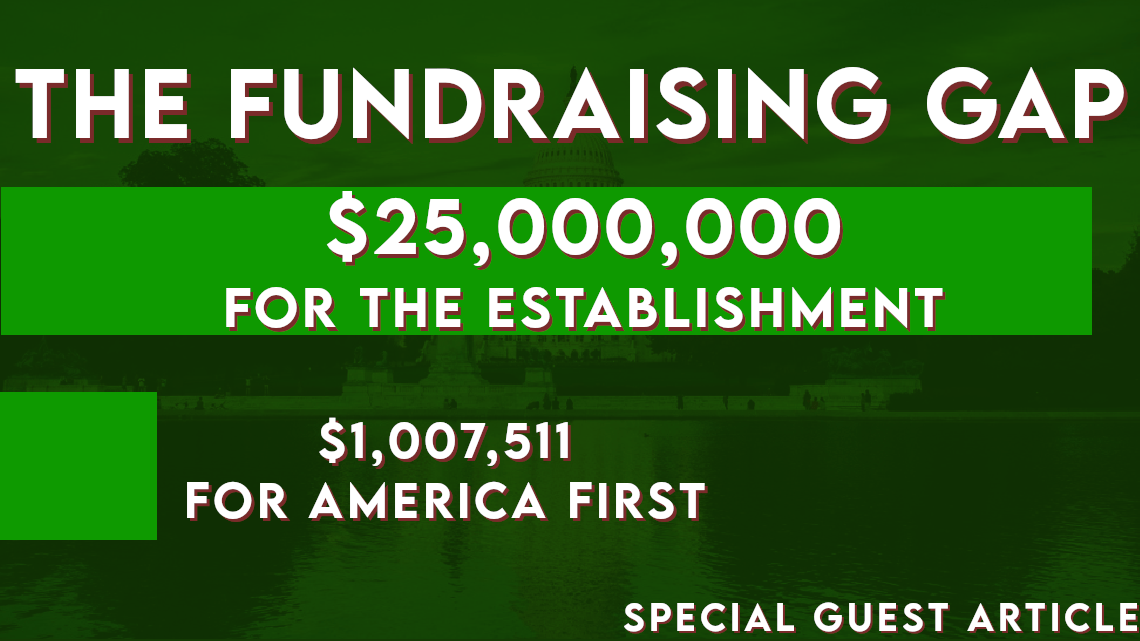
Published on
Written by Special Guest: SparklePolitics
What is the most important reason candidates are capable of winning elections? Is it due to their charisma? Their proclaimed positions and enticing platform pages? Could it be the momentum generated by their grassroots base? While important, perhaps none of these factors are the answer as to why candidates are capable of winning elections, specifically elections where a candidate has the perfect charisma, the perfect campaign team, and the perfect issues but ultimately falls short as they are outraised by a margin of 1:10. And sometimes more.
In electoral politics, two races are never the same. They may be similar and even field the same candidates as a previous election in an electoral rematch but things have still changed even if they do not look the same. Why is this worth mentioning? It's because everything comes down to the small details. But if we do not change for the better and take our success for granted while our opponent improves and learns, our complacency will be our death. What this means is that if we want our candidates to win this time, we need to fundraise and campaign more aggressively than ever before.
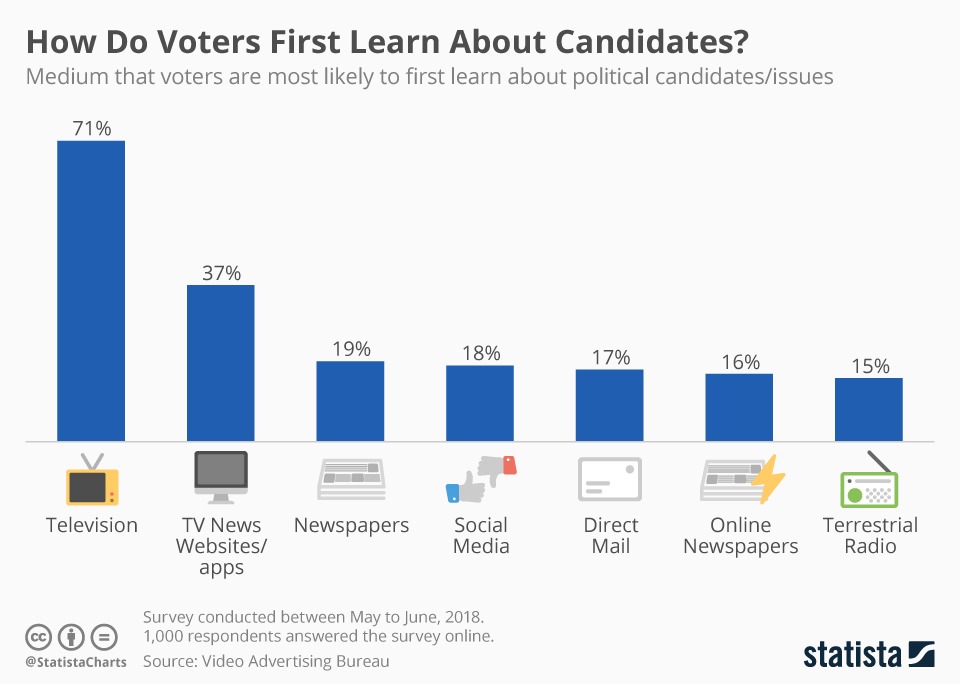
This is a 2018 May to June poll from the Video Advertising Bureau on how voters first learn about candidates and their platforms. And I know 2018 is a long time ago but this is the only available statistic that I could find. But compared to 2018, we have a younger and more modern political scene meaning that more voters are reliant on social media and online newspapers.
And for those who are questioning how important fundraising is towards winning a race, I will now be bringing various races from the 2024 Republican Primaries to prove that campaign contributions are what makes or breaks a campaign in the end. All of these races that I will be using as an example are Congressional races but in local races such as State Legislatures, America Firsters have been capable of sweeping offices due to a much smaller fundraising gap and even in certain cases we have outraised our opposition which have allowed us to terraform the political climate of states.
For example in Idaho, 15 GOP State Legislature incumbents lost their primaries with these seats representing about 12% of Idaho's 105 state legislature seats up for election with many incumbents in leadership roles being swept away. In Texas, America Firsters in Precinct Committee positions are pushing the envelope as right as possible on the State Chapter's official policy as well in primaries where 15 GOP incumbents were primaried and 10 retired. This is in addition to the very close primary to remove RINO TX State House speaker Dade Phelan which we barely lost with there being a 1:4 fundraising gap in favor of Phelan.
In 2024 Super Neocon Dan Crenshaw faced a primary challenge from the right by Constitutionalist Candidate Jameson Ellis. Despite the fact that this race was expected to be a blowout for Crenshaw, Crenshaw did worse than expected as Crenshaw supporters represented 59.5% of the electorate; 40,379 votes compared to Ellis' 40.5% 27,482 voters.
However back in the 2022 Primary, Crenshaw represented 74.5% of the Primary with 45,863 voters with three other Anti-Crenshaw candidates including Ellis adding up to 25.5% of the Primary with there being 15K anti-Crenshaw voters. And the Anti-Crenshaw coalition's donations added up to 77K dollars with Crenshaw raising a hulking 15 million for the Primary and General elections.
But compared to 2024, Ellis's donations represented 32K while Crenshaw raised 3 million dollars. And in 2024, Crenshaw was less of a target or a priority of the establishment or grassroots activists as he was in 2022 making it a shock that the race ended up like this. With Crenshaws' 1:200 fundraising advantage being reduced to 1:100, and if fundraising was the same as in 2022 it would be a ratio of 1:40. While we are unlikely to primary Crenshaw in 2026, it would be to see what we can do considering his declining primary vote total.
This race is a lot close and contentious and it was a high-profile race between RINO Tony Gonzalez and gun YouTuber Brandon Herrera. Originally this primary started as a 5-way race between Gonzalez and various primary challengers which ran to his right. And as Gonzalez was incapable of breaking past the 50% margin to outright win the primary, a run-off election between Gonzalez and Herrera would begin.
Note: Political Action Committees (PACs) are tax-exempt organizations focused on political activism. Most PACs are run by the establishment as it takes considerable funding and effort to create one and make it mean something.
In the runoff election, which was decided by just 600 votes, there was a 1:2.5 fundraising gap between Herrera and Gonzalez. Herrera raised 1.9 million while Gonzalez raised 5.3 million and even more if one was to consider all the establishment PAC money that went his way to defame Herrera. For the purpose of this article, I will not be taking note of indirect ads spent as negative media against one's opposition as these funds aren't necessarily raised because of a candidate's fundraising ability and this article is too long.
Another close and controversial primary would be that of incumbent Congressman and House Freedom Caucus Chairman Bob Good who faced a primary challenge from John McGuire, a State Senator. Good raised 1.3 million while McGuire raised 1.4 million despite not being an incumbent. And with spending against Good adding up to 3.7 million more dollars in McGuire's favor, this was while AIPAC called him a raging antisemite over his willingness to put America First. The race was decided by just 300 votes. McGuire 31,583 votes to Good's 31,209
Another close but under-talked race was Iowa's 1st District Primary where the incumbent Congresswoman Mariantee Miller-Meeks faced a primary challenge from David Pautsch, a local pastor and veteran. Meeks raised 3.5 million dollars while Pautsch raised a measly 35 thousand. The result? Meeks secured 55% of voters with 16,529 votes compared to Pautsch's 43.9% and 12,981 votes. A primary decided by 3600 votes with a 1:100 spending difference.
Another close and under-discussed primary was Utah's 2nd District's Primary Race with the newly incumbent Celeste Maloy facing primary challenger Colby Jenkins. Maloy raised 1.6 million while Jenkins raised 465k. A 1:3 fundraising gap and the result? A weeks-long period of doubt and suspicion considering the close race with the final results coming to show Maloy at 53,478 votes to Jenkin's 53,534. A difference of less than 300 voters.
Another more shocking primary would be Illinois's 12th Primary where Congressman Mike Bost faced a challenge from Darren Bailey, a former State Legislator and 2022 Gubernatorial Candidate. Bost raised 2.8 million while Bailey raised 639k dollars. And the surprising thing about this race is all the controversial baggage that Bailey had on him. He openly supported Palestine, disavowed the Israeli slaughter in Gaza, failed to acquire the Trump endorsement and he had the entire GOP endorsing him. And 1:4 fundraising gap. And the result? Bost at 48,770 votes with Bailey at 46,035. A race decided by less than 3000 voters.
This is a more than good enough number of races to prove that even if a candidate was popular and well-liked, ran on a popular platform, had a powerful grassroots and team in the end they would be incapable of reaching victory due to the dominance of big money in American politics. This begs the question: what should we do to address the problem?
Currently, I see two solutions to this issue.
The first which is a greater focus from candidates and the GOP on grassroots fundraising events. Why grassroots events? Unlike big Billionaire donors, the grassroots are more loyal and convenient to the America First agenda, unlike most billionaire oligarchs which are interested in what Republicans could do for them. For example, big oil oligarchs donate to Republicans so they can get more oil permits with their already existing permits getting fast-tracked. Another issue is school choice where business leaders in private education donate to school choice candidates since school choice programs are a direct and indirect subsidy to their business as some of the costs of private school are converted and private school registrations surge. Another issue where this is apparent is the Military Industrial Complex, they send their lobbyists, consultants, and dollars to candidates and incumbents so they can get lucrative Department of Defense contracts and new wars.
So even if you support a cause like oil drilling, school choice, or wars, this is not even an attack on you but it's just how politics work. Special interest groups fighting for their best interests and beliefs. The fundraising issue can be solved by attempts by local and state GOPs to contact Republican small business owners and get them to donate to our candidates in the primaries while expanding the small business coalition to Democrats and Independents who may be swayed by an infographic about the good that the GOP is doing for small businesses. And this may not be enough so, new promises to small business owners such as removing taxation on small businesses in their first 5 years of business when 45% of them fail. For reference, in 2 years, 20% of small businesses fail, in 10 years 65% of small businesses fail, and after 15 years 75% of small businesses fail.
And while it's a big commitment, it's possible that we could get Republican primary voters to become small business owners as a way to increase their capacity to donate to our candidates. Of course, starting a small business is a major commitment but the Republican Party is the party of small businesses and entrepreneurship so if the GOP were to have events about helping our own learn the craft of entrepreneurship and how to start, that could be a major boost in donations.
For example, let's say 1% of primary voters become small business owners and donate up to the political contribution cap of $3,300 to a candidate. And let's say that there are 30k Republican voters in a congressional primary (numbers vary) and 1% of them is 300 so with a donation of $3,300 is 990k dollars to our congressional candidates. Which is a lot of money. But even if they were to donate half of $3,300 it would add up to 495k dollars.
A donation of half a million dollars in a congressional primary is really serious money that could shift a race in our favor. And how many small business owners are in America today? 33 million. So effectively a tenth of our population runs small businesses through a large number of small business owners that being 27 million of them (80% of small businesses) are "nonemployer" small business owners meaning that it's a one-person project. Most of these non-employers are YouTubers, Contractors, Consultants, Social media influencers, Gig workers, and direct sellers on online marketplaces. So the number of conventional small business owners represents 2% of the population.
And considering various factors, small business owners are natural allies of the GOP and here's the facts:
Small business owners are 70.8% White and the White demographic is 90% of Republican voters and voted for Trump by 58% to Biden's 41% in 2020.
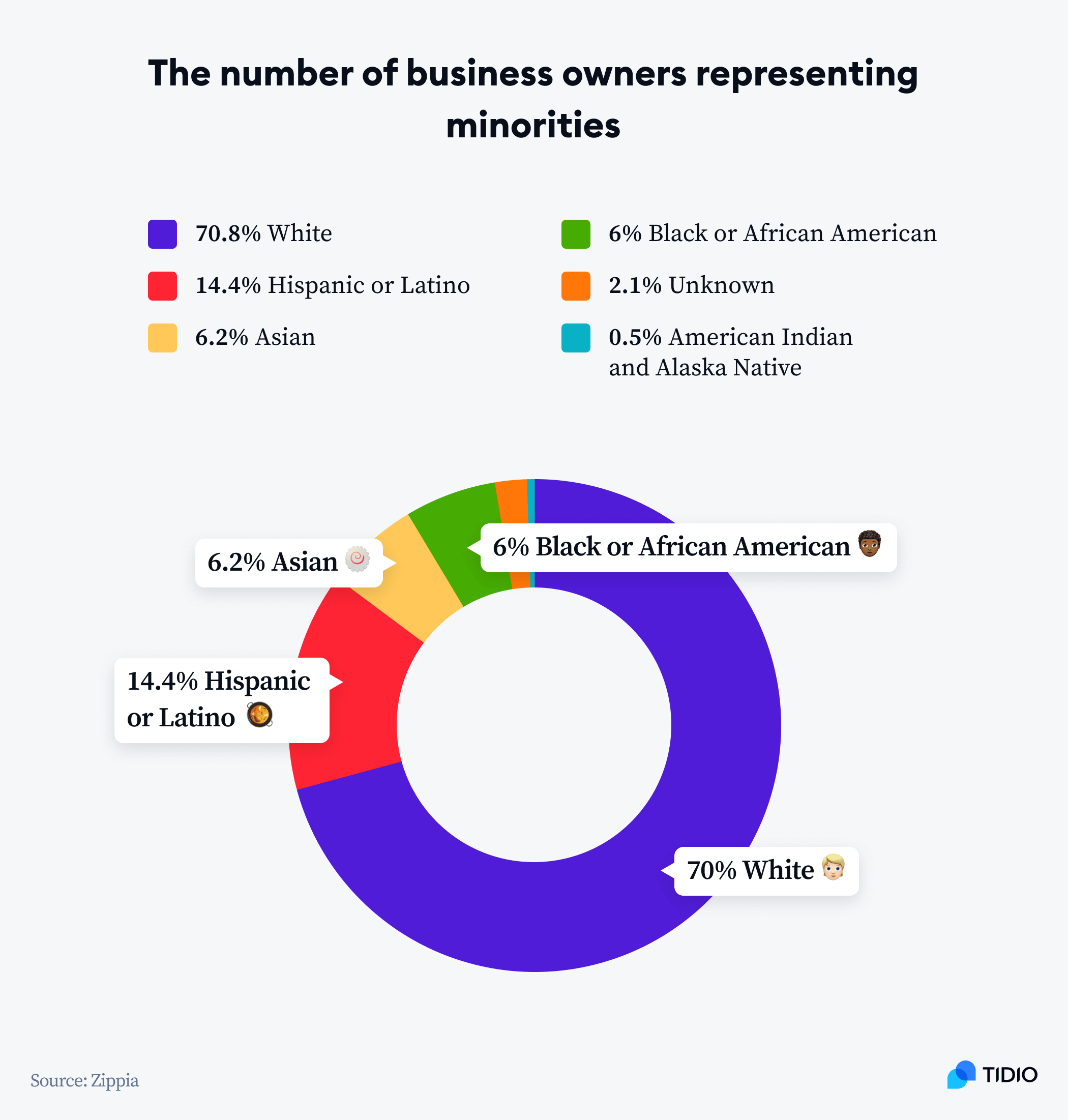
The motivations for why individuals start-up small businesses match up with Republican values. Freedom to live life on one's own terms is a major part of the GOP platform, so naturally small business owners would be interested in what the GOP has to offer.
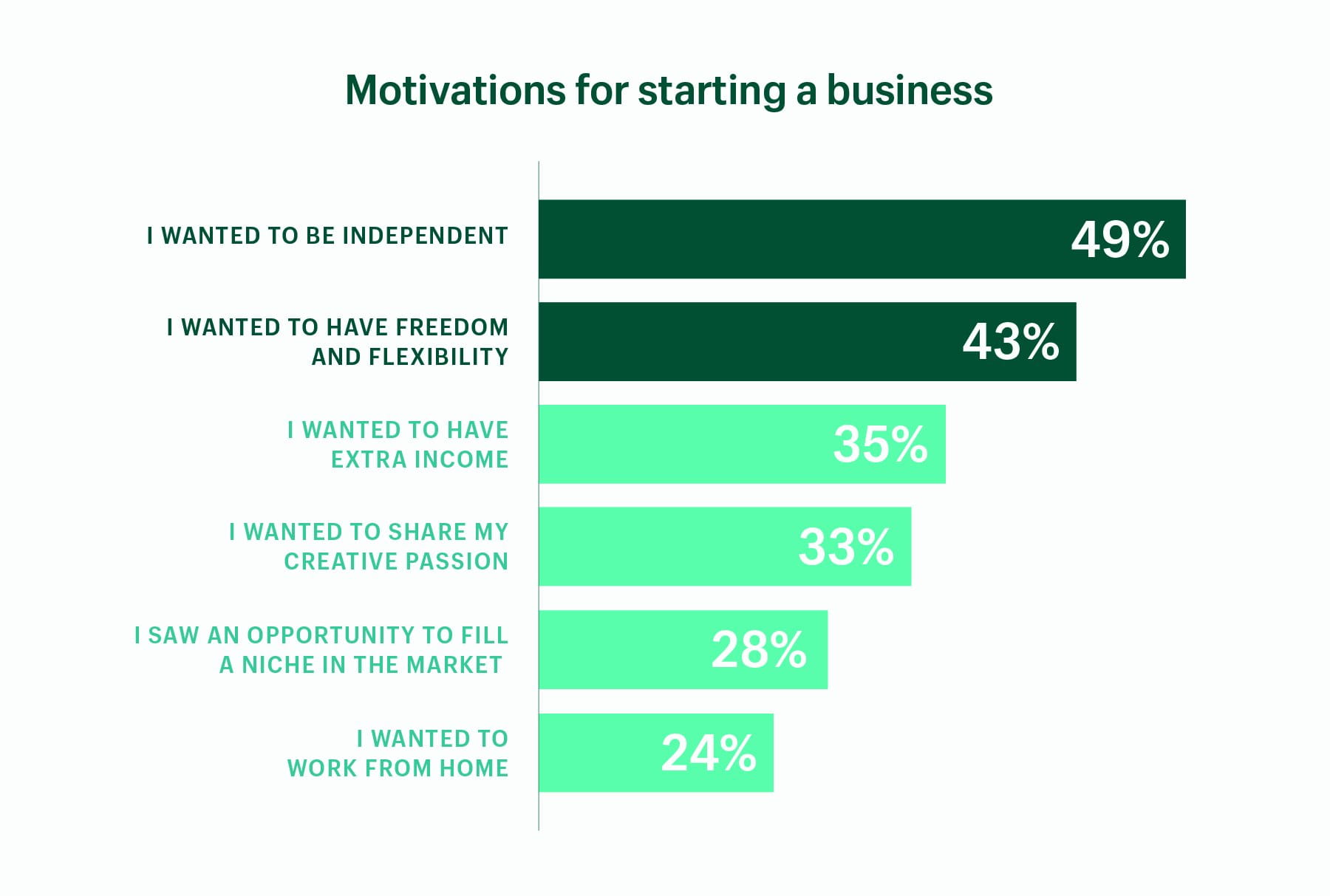
This is a graphic on what are the top 5 most popular industries for small businesses and with promises such as eliminating taxes on tipping, reducing small business taxes and reducing regulations will naturally make businesses more favorable towards the GOP.
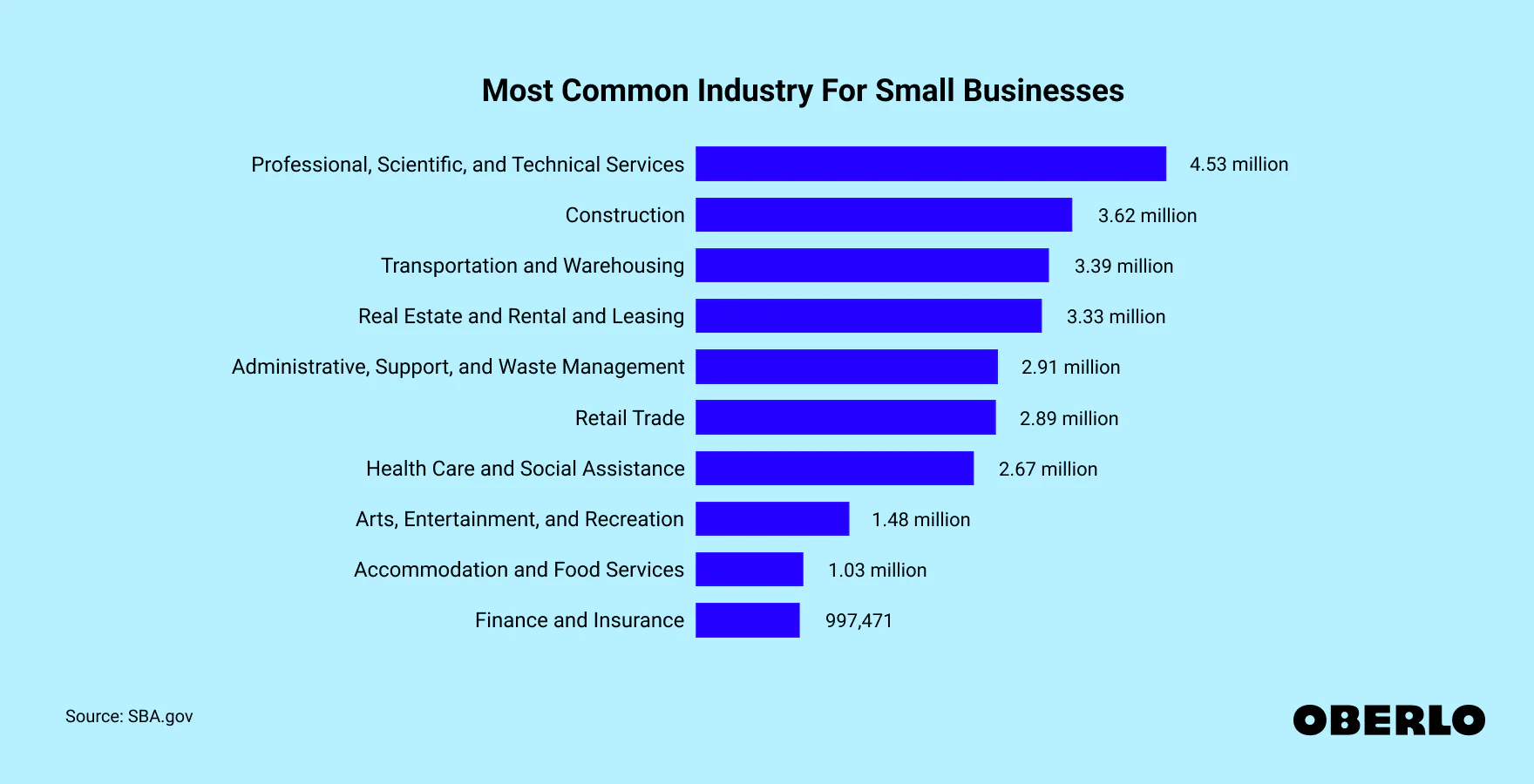
And here's a graphic asking small business owners about their thoughts and concerns about the economy today with Democrat and more broadly uni-party policies working to undermine their financial wellbeing. By comparing and contrasting uni-party policy to America First policy with our candidates and deliberate addressing of small business issues we can win the votes and the donations of American small businesses.
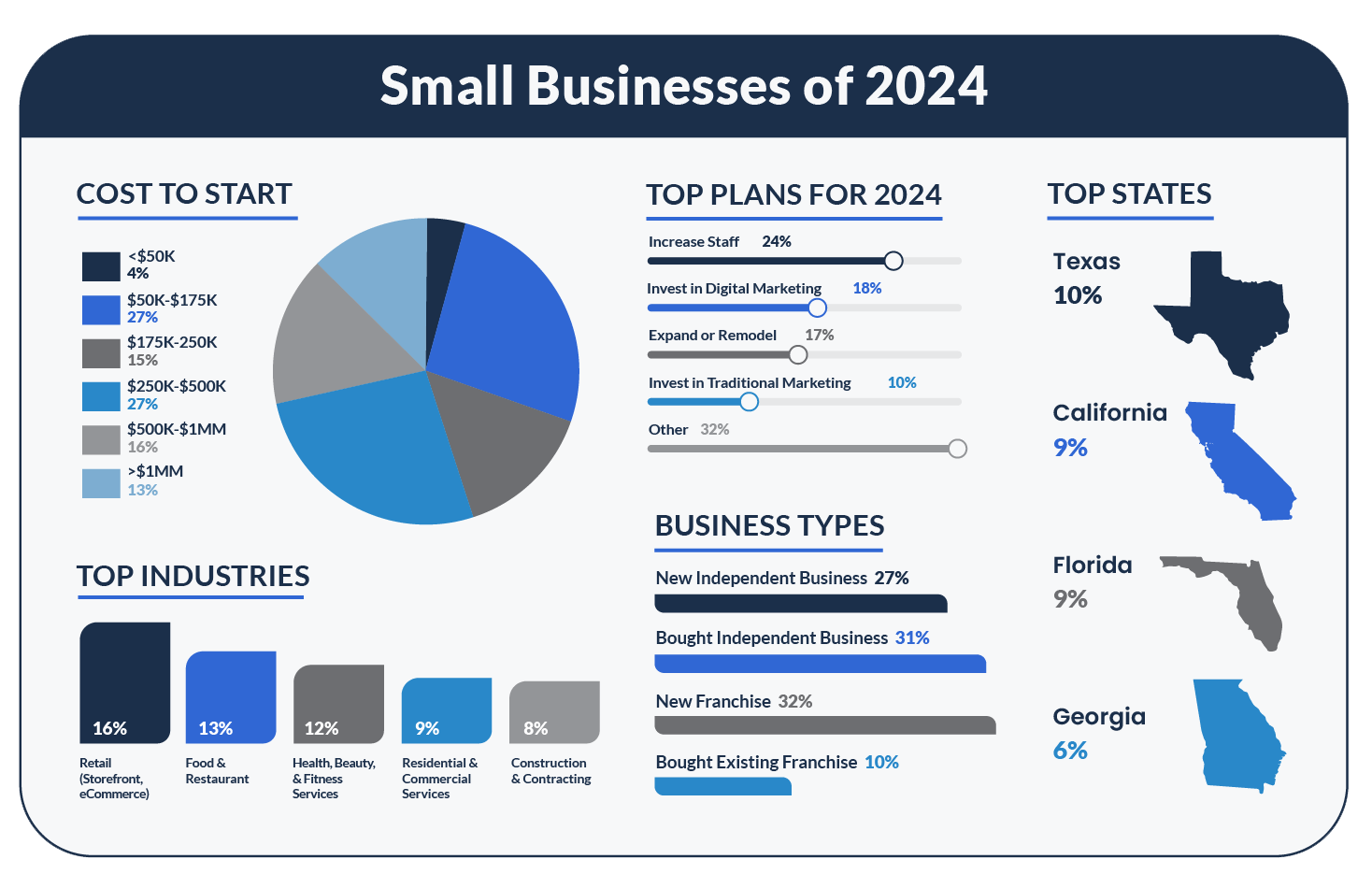
Another method that we could use to close the fundraising gap be it forcefully is to institute harsher campaign finance laws at the State and Federal levels. As I am not an expert on campaign finance laws, here are 10 principles that the Coalition for Integrity, an organization based on enabling stricter campaign finance laws. This list of 10 principles comes from their 2022 review of state finance laws, so some details may be outdated.
For the following section, the terms campaign and candidate are used interchangeably.
Principle 1. All states should have an independent agency with jurisdiction over campaign finance with wide powers to investigate and sanction violations of campaign finance laws. 21 states have one or more agency with jurisdiction over campaign finance, with the powers necessary to conduct independent investigations and compel testimony and documents through subpoenas. Nine states (Arizona, Massachusetts, Montana, Nevada, New Hampshire, North Dakota, South Dakota, Vermont, and West Virginia) have no power to sanction violations.
This means that individuals and campaigns that engage in campaign finance violations are investigated and prosecuted by a non-partisan state agency.
Principle 2. Sanctions should be meaningful in order to deter violations of campaign finance laws and not left to criminal proceedings. Agencies in 35 states lack independent authority to enjoin, in any way, violators of campaign finance laws. 13 states only have the authority to issue minimal fines of $25 a day or less for late filing of campaign reports. For fines with respect to other substantive violations, 27 states either have no authority to impose fines, can only impose fines for one or two kinds of violations or can impose only minimal fines. Only California and Georgia received full credit with the ability to issue injunctions and substantive fines for late filing and other violations of campaign finance laws.
If an individual or a campaign engages in campaign finance violations, there must be actual real-world penalties to their crimes rather than a warning and a slap on the wrist which wont work to deter or publicly condemn corruption.
Principle 3. Members of the agency should be statutorily protected from removal without cause. 18 states do not statutorily protect the members of their agency or the Secretary of State from removal without cause.
Officials from finance transparency agencies can only be removed with just cause, meaning that in case of partisan conflict with a powerful official for example the Speaker of a State House, they cannot be undermined so easily.
Principle 4. States should limit contributions to political candidates by individuals and PACs to the Federal limit of $2,900 (In 2024 the FEC allows $3,300) per election and prohibit corporations and unions from making contributions. 16 states have no limits on individual contributions or allow individuals to contribute more than $10,000 per election. 21 states have no limits on PAC contributions to candidates or permit PAC contributions in excess of $10,000. Eight states have no limits on contributions by corporations/unions or permit contributions in excess of $10,000. 17 states follow Federal limits for individual contributions, 14 follow Federal limits for PAC contributions, and 19 follow Federal limits for corporations/unions.
Special interest groups such as unions and corporations are prohibited from making contributions to campaigns, while donations to candidates by individuals and PACs are limited to the FEC limit of $2,900 ($3,300 in 2024).
Principle 5. States should limit contributions to political parties by individuals and PACs to the Federal limit of $36,500 and $15,000, per year respectively, and prohibit corporations and unions from making such contributions. The majority of states (28) have no limits on individual or PAC contributions to a state political party or permit individuals and PACs to contribute in excess of $36,500."
States enforce the Federal limit of $36,500 for individuals and $15,000 for individuals per year to political parties. Corporations and unions are prohibited from making donations to political parties.
Principle 6. States should clearly delineate conduct and types of spending that constitute coordination between campaigns and independent spenders and require the establishment of firewalls between campaigns and independent spenders to ensure that such spending is truly "independent." 19 states have detailed rules defining the types of conduct and campaign spending that count as "coordination." Only nine states authorize the creation of firewalls as a means to prevent coordination."
This principle doesn't specify how states enforce the separation of campaigns and donors but this principle would work to prevent corruption and stolen elections which may occur as a result of campaign-donor collusion. This would also improve public transparency, and political fairness for outsiders.
Principle 7. States should mandate comprehensive disclosure about donors to independent political spenders, as well as information about the beneficial owners of LLCs and donors to 501(c) organizations which contribute to those independent spenders. Currently, only Rhode Island requires reporting 1) name, address, date, and amount of contributions above a reasonable level by all contributors to independent spenders and 2) the underlying sources of funding for these contributions made by LLCs and 501(c) organizations. Alaska, California, and Idaho received full credit for their reporting requirements for funders of 501(c) groups; Colorado received full credit for reporting the beneficial owners of contributing LLCs. South Carolina and Indiana do not require independent spenders to report any information about their contributors.
States will require comprehensive disclosure for donors to independent political spenders. Independent political spenders are individuals and organizations that exist outside the campaign and are not allowed to collude with these. These meant to be independent groups do various activities such as fundraising for the campaign, voter enthusiasm and turnout actions and events. These independent groups are forbidden from consulting the campaign they support or that of their opposition. Independent political spenders include Super PACs, and 501 (C) organizations.
Just so you are up-to-date, Political Action Committees (PACs)
Super Political Action Committees unlike normal PACs can raise and spend unlimited amounts of money from individuals, corporations, and unions, but unlike normal PACs they can't spend directly on a candidate or a party. For example, Peter Thiel spent tens of millions in Super PAC money in unaffiliated negative press against the opponents of Blake Masters and JD Vance and unaffiliated positive press to promote his candidates. 501(C) Organizations are non-profit groups including 501(C) (4) groups which are social welfare groups such as Churches, charities, and political groups some familiar names are Project Veritas, Planned Parenthood Action Fund, and Concerned Veterans for America; And 501(C) (6) groups which are for-profit trade associations such as the Academy of General Dentistry, and the Academy of Nutrition and Dietetics; 501 (C) (5) groups include non-profit agriculture groups, and labor organizations (Unions) such as Teamsters, United Auto Workers, and United Steelworkers.
Principle 8. Political advertisements across all forms of media - print, television/radio, and Internet - should be transparent about their underlying funding. The majority of states (34) received full credit for each category of media. Georgia is the only state that does not require the disclosure of payors of political advertisements across any media. 12 states received full credit for requiring disclosure on print and broadcast media but have no or limited disclosure requirements for political advertisement or other electioneering communications on Internet-based media.
Political ads will be transparent about who is funding them. For example, a Thiel ad would say "This message was funded by Peter Thiel."
Principle 9. States should require candidates and independent spenders to report contributions received and expenditures made within the last 30 days before an election in a timely manner so that voters can judge candidates and independent spenders more accurately. Almost all states (47) require candidates to report contributions of $1,000 or more received within 30 days of an election. Those reports have to be filed within 24 to 48 hours of receipt in every state except Vermont, Massachusetts, Arizona and Arkansas. Only Nevada has no pre-election reporting requirement at all. The majority of states (34 states) require reporting of expenditures by independent spenders of $5,000 or more within 30 days of an election within 24 to 48 hours of receipt and include contribution information. Five states (Indiana, Kentucky, Nevada, South Dakota, and Utah) do not require pre-election reports from independent spenders.
Campaigns and independent spenders will have to report all contributions and expenditures, a month prior to an election. Be it a primary, run-off or general election.
Principle 10. All campaign finance information should be filed electronically and be easily accessible and sortable on the agency's website. Pennsylvania and South Dakota still allow campaign finance reports to be filed on paper. Every other state requires campaign finance information to be filed electronically. With the exception of Virginia, Utah, South Dakota, Oregon, and Nebraska, all states have websites which can be searched and sorted with at least four of the variables below. For candidates - by name, year, office, date and amount of contribution or expenditure, contributors. For independent spenders - year, amount of expenditure and candidate supported or opposed.
Campaign finance details will be on the campaign finance agency's site in a clean and accessible manner so that voters are better informed about who is funding their candidates.
While you can disagree about some principles set forth by the Coalition for Integrity or what spending point we should be regulating, it is an indisputable fact that these campaign finance reforms would do a lot of good to ensure that American elections aren't bought out. But another issue that we face is the fact that the same people who buy out elections have powerful sway over the media, conventional and electronic.
For example, 90% of TV stations in America are owned by 6 (maybe five now) companies who are all friendly with each other. But 39 years ago, 50 separate companies were in charge of most of the American media, and as the natural tendency of power is to attract and further accumulate we have seen many willing mergers and forced acquisitions. And on social media, Mark Zuckerberg's Facebook suppressed the 2020 story about Hunter Biden's laptop which would sway a major number of Biden voters into voting for Trump. And that issue isn't directly connected to the fundraising gap, this article is long enough, so we can talk about it another time.
But the main takeaways of this article are: One, America Firsters are losing federal and major state races due to an incapability to fundraise effectively; Two, we need to recognize the natural allies of the America First Movement namely small business owners which represent the success of the American dream; And three, unless we are capable of eliminating the fundraising gap be it through legislation or getting small business owners into our fold, we will never be a sovereign movement with the ability to do as we please in American politics.
Thanks for reading to the end. If you want to follow me or get involved in anything special I have planned, follow me on Twitter at @SparklePolitics